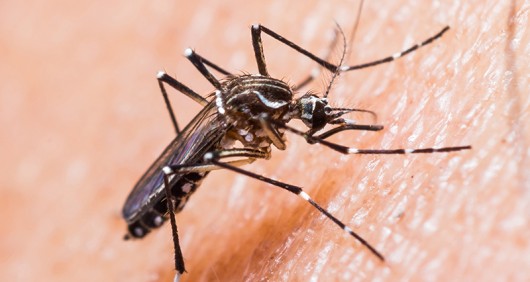
Zika virus is primarily spread through mosquitoes. Credit: Courtesy Fotolia/TNS)
With the Centers for Disease Control reporting a total of 2,260 cases of Zika virus within the United States, safe travel habits have become vital to stopping the spread of the disease: Only 14 cases have been categorized as those caused by local mosquitos — the rest have been travel-associated cases.
The epicenter of this outbreak has been Sao Paulo, Brazil, which is also one of three Global Gateway locations for Ohio State. OSU currently offers six study abroad programs to Brazil, as well as an additional eleven programs to South American countries affected by Zika.
Three students chose not to travel on summer international programs to a Zika-affected country this summer, said Dru Simmons, International Risk Manager for OSU’s Office of International Affairs.
“The impact has been minimal and the majority of students studying abroad continued with successful experiences,” Simmons said.
One can contract Zika through mosquito bites by those carrying the disease as well as through sexual intercourse with an afflicted individual. The Zika virus does not always cause symptoms in affected individuals. However, it can cause mild flu-like symptoms such as joint pain, red eyes, fever, and a rash. The virus’s effects have been mild in adults but devastating to fetuses, causing severe brain damage through a rare condition called microcephaly, according to the website for the CDC.
Despite the minimal risk to adults, OSU is not taking the outbreak lightly.
“We continue to monitor the situation as well as provide updates to students currently traveling or enrolling in programs to regions that fall under the alert issued by the (CDC),” said Simmons. “Ohio State has taken proactive steps to help students keep themselves and others healthy when traveling to affected regions.”
In order to prevent the spread of infection, the CDC recommends avoiding mosquito bites and practicing safe sex when in Zika-affected areas.
Despite the risk, Deanna Darrach, a first-year in international business, said she still intends to pursue a study abroad program in Brazil.
“I keep hearing people around me worrying about this (the Zika virus) and things like it, but I don’t want to let that cause me to miss out,” Darrach said.


